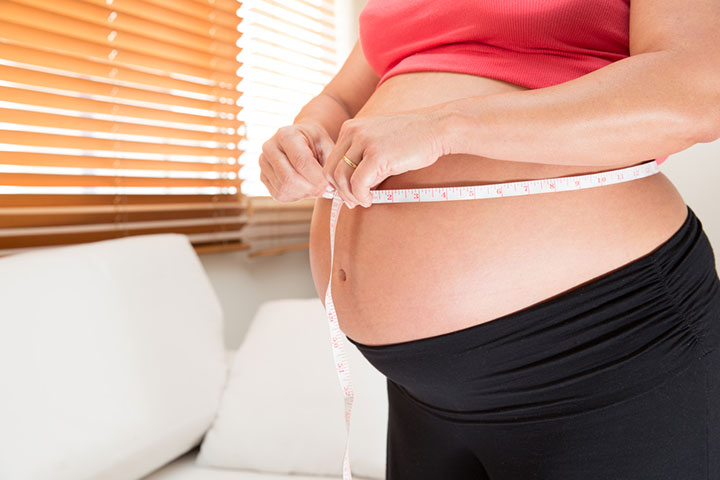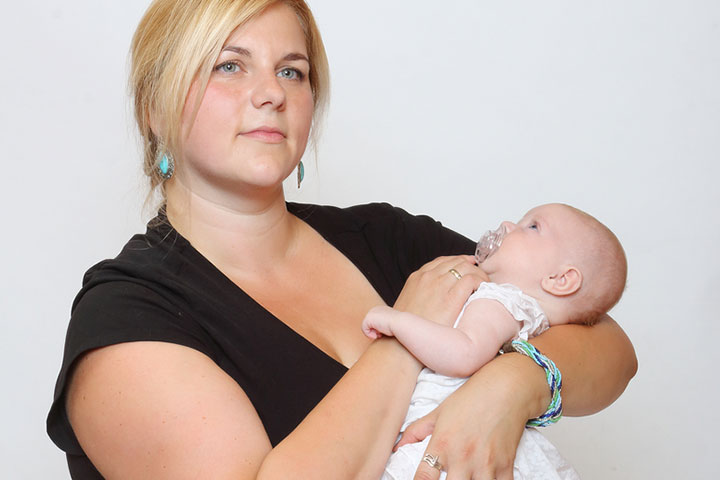
Image: Shutterstock
The connection and unconditional love between a mother and her children is beyond comprehension. It is difficult to put into words, starting from the moment of conception. It’s no secret that giving birth leads to dramatic changes physically, mentally, and emotionally. These changes impact your body and your way of life, transforming everything there was. Alongside the euphoria of a new growing life force within you, there’s the responsibility of safeguarding the health of your growing and delicate baby. It all begins with ensuring the well-being of your baby during pregnancy.
However, it is not all rosy and nice. Recent research has noted the mother’s pregnancy obesity is associated with the development of the child’s cognitive functions (1). Nonetheless, it’s important to remember that it’s advisable to reach out to a healthcare provider about any matters related to the growth and development of your child. If you’re interested in learning more about the impact of maternal obesity on the baby’s brain development, read on!
Obesity During Pregnancy
Image: Shutterstock
The mother-to-be’s weight is an important factor that is a matter of medical concern. It is crucial that her weight gain occurs gradually during her pregnancy and falls within the range of ideal weight for each stage of gestation. Sudden and significant weight gain can lead to several complications for expectant mothers, including pre-eclampsia elevated blood pressure levels, and gestational diabetes (2). You can determine whether you have the ideal weight or not by using a body mass index (BMI) table (3).
However, it’s important to recognize that excessive weight gain during pregnancy may not only jeopardize the mother’s health but could also have adverse effects on the baby. For instance, pre-eclampsia can pose risks to the pregnancy. While this condition does not typically hinder the mother’s capacity to deliver without complications, in certain cases, there might be a risk of miscarriage, or premature birth.
The Study
Image: Shutterstock
A study published in BMC Pediatrics analyzes the association between maternal pregnancy obesity to developmental challenges in their infants (4). The team conducted regular assessments during the pregnancy period and then followed up when the children reached the ages of 3 and 7.
The selected cases all fell within the same social and economic stratum. Additionally, the timing of the baby’s birth during gestation and the conditions of the immediate environment the infant encountered were taken into account. For children at the age of 3, assessments were conducted to evaluate their responses to their surroundings and their behavior in social spaces. Four years later, at the age of 7, further tests were administered to measure verbal comprehension, working memory, processing speed, and perceptual reasoning.
The Results
Image: Shutterstock
The children were then reexamined when they were 7, scientists found that male offsprings of obese pregnant women had lower IQs than those of women who weighed normal during their pregnancies. However, it is important to note that this occurred only in males and the that difference was about only 5 points of slightly higher.
The Takeaway
Image: Shutterstock
It’s important to clarify that while the study found that the mother’s pregnancy obesity is associated with issues in their children, it doesn’t provide a definitive explanation for why this connection exists. Conversely, the study took into account the social and physical environment of every child and discovered that the influence of obesity during pregnancy on a child’s IQ was reduced or absent when they were raised in a nurturing and comfortable home. In these environments, children received consistent opportunities for play and learning.
It is essential to consult with a healthcare professional or a registered dietitian to create a personalized weight loss plan. A balanced diet is crucial, focusing on whole foods, vegetables, lean proteins, and whole grains, while limiting the intake of processed and high-calorie foods. Portion control and mindful eating are also valuable tools.
Regular physical activity is a key component, incorporating both aerobic exercises and strength training. Alongside this, adopting a sustainable and gradual weight loss strategy is important, aiming for around 1-2 pounds per week. Consistency and patience are essential, as is staying hydrated and getting adequate sleep to support your metabolism and overall well-being.
It’s also crucial to address the psychological aspects of weight management, seeking support when necessary, as emotional and mental well-being play a significant role in achieving and maintaining a healthy weight.
There are several reasons why obesity can happen to a woman during pregnancy. And as we all know the struggle to lose weight can be daunting and frustrating. Be patient with yourself and consult your doctor before you make any drastic changes in your diet or lifestyle. So, have you ever dealt with maternal obesity during pregnancy? And did you know of the negative effects it could potentially have on your kids? What did you do to overcome it? Share your experiences in the comments section.

















